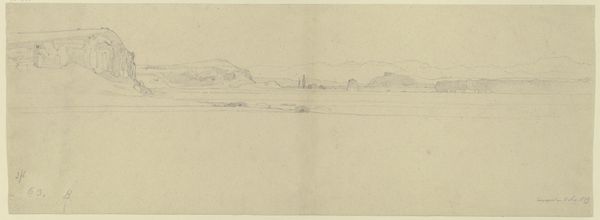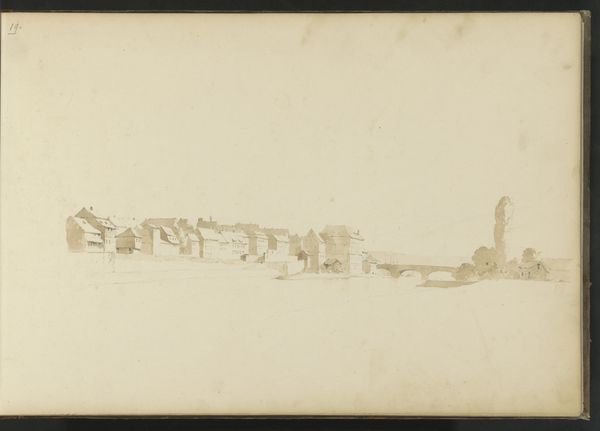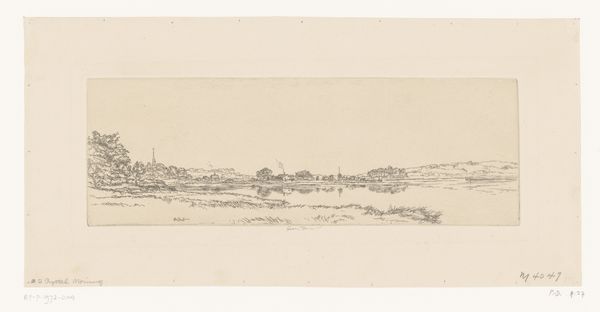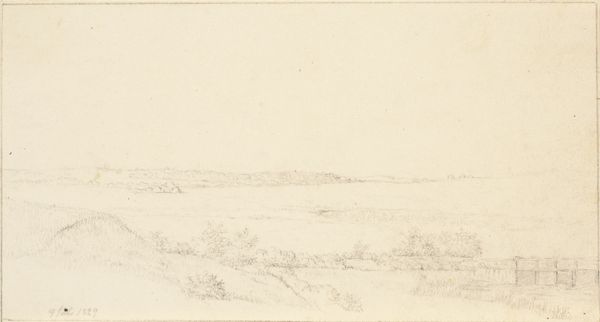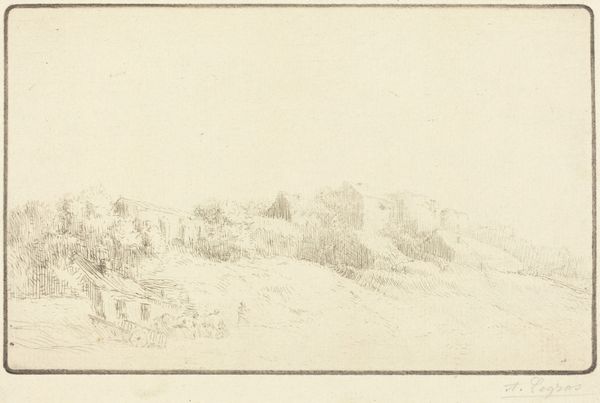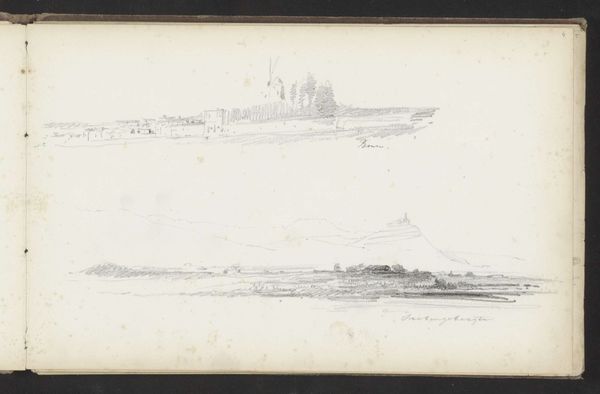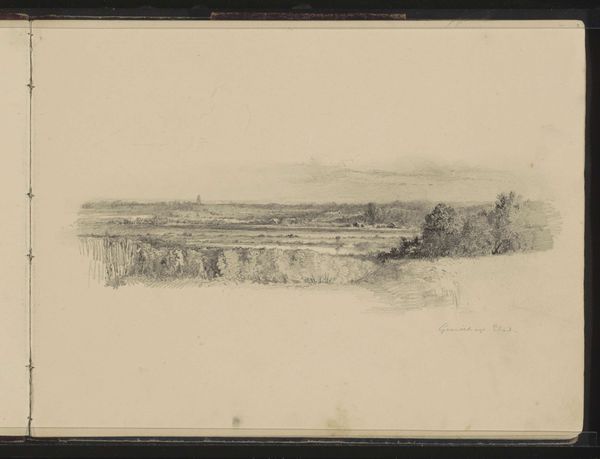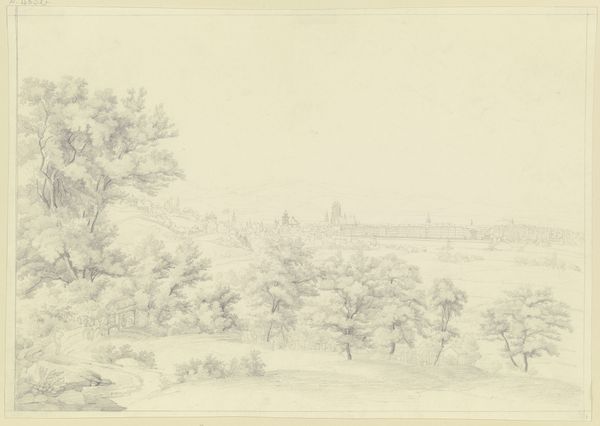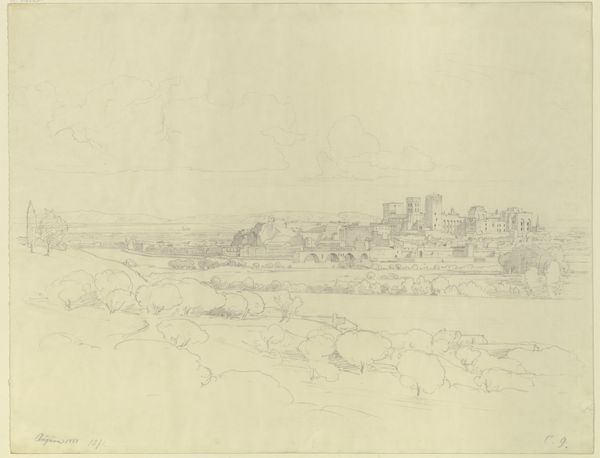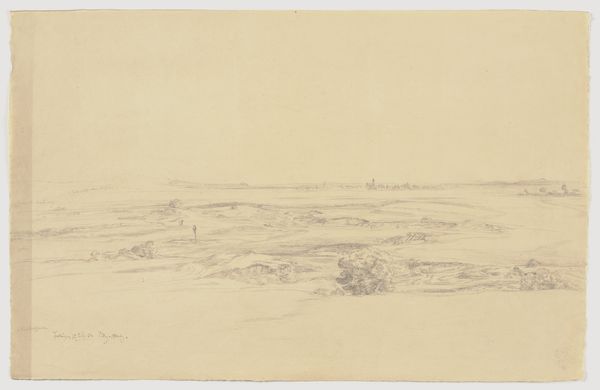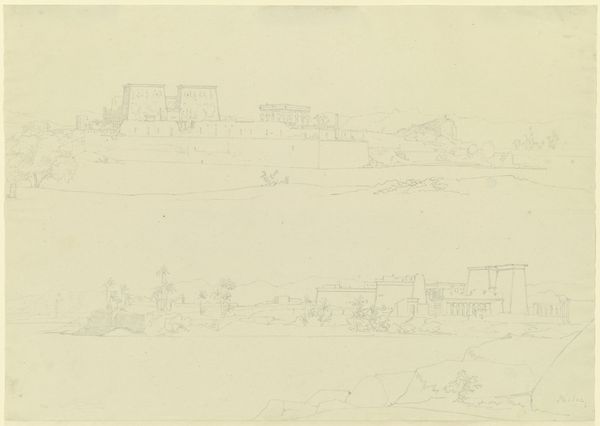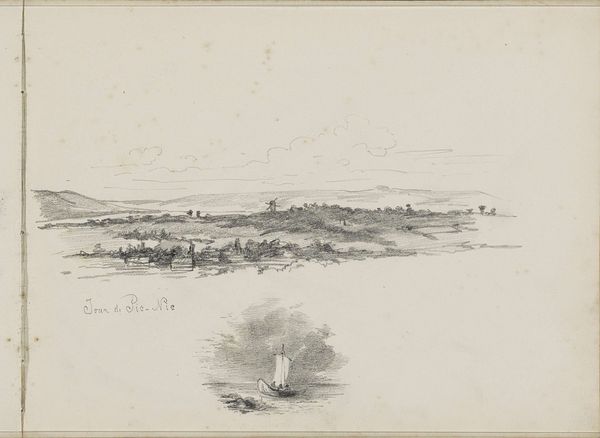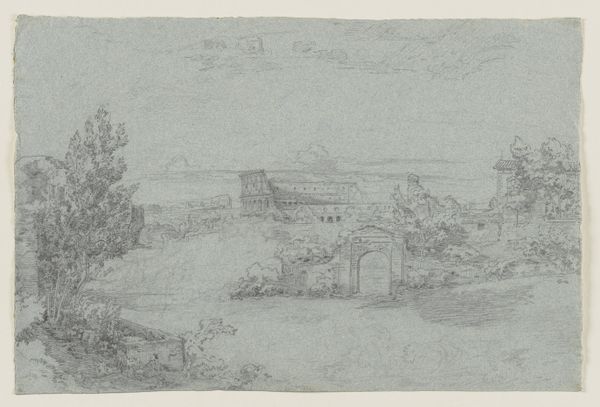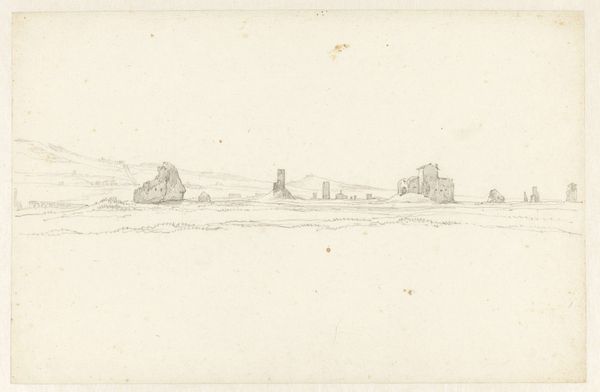
drawing, etching, pencil, graphite, architecture
#
drawing
#
neoclassicism
#
etching
#
landscape
#
etching
#
romanticism
#
pencil
#
graphite
#
cityscape
#
architecture
Copyright: Public Domain
Curator: Welcome. We're looking at "Römische Ruinen und Blick auf die Berge in der Campagna" by August Lucas, created between 1830 and 1831. It’s currently held in the Städel Museum’s collection, and employs graphite, pencil, and etching techniques. Editor: It has this almost dreamlike, hazy quality to it. It feels delicate and like a half-remembered landscape from a dusty, ancient story. There’s something inherently melancholic, almost fragile, about it, too. Curator: The work encapsulates key interests of the Romantic era—particularly, the fascination with ruins, landscape, and a kind of idealized, longing look back at classical antiquity. Lucas lived in a time where rediscovering and reinterpreting the past was linked to ideas of national identity and cultural progress. Editor: Absolutely! You feel that yearning, that distance between now and then. It’s not just documentation; it’s a conversation with the echoes of Rome, a quiet contemplation of empires past. Does anyone feel some subtle visual anxiety? Curator: Anxiety isn't my primary reading, but I certainly see the tension between the imposing remnants of Roman civilization, and how those monumental constructions are now, irrevocably, ruins. This points to complex sociopolitical forces: the cyclical nature of power and the transient quality of human achievements. Editor: Right, a ghostly fingerprint across time! And those light strokes. Almost faded! A ghost. It makes you think about who builds empires, and who clears up the mess left. The "view" and the "ruins", maybe, of looking at yourself and life’s passage with beauty and also a fear for time passing too quickly and the eventual loss of yourself. A memory? Curator: Yes, your personal response speaks to the intersectional experience, drawing connections between historical decay and individual mortality. Viewing the artwork within such frames illuminates art's capability to address complex political narratives and intensely personal truths simultaneously. Editor: Precisely! Well, August Lucas’ landscape, seemingly captured for posterity in shades of muted reverence, will always get me reaching for the tissues, and feeling rather old! Curator: I appreciate how you make the historical resonate with contemporary, individual emotions. Art has that power.
Comments
No comments
Be the first to comment and join the conversation on the ultimate creative platform.
